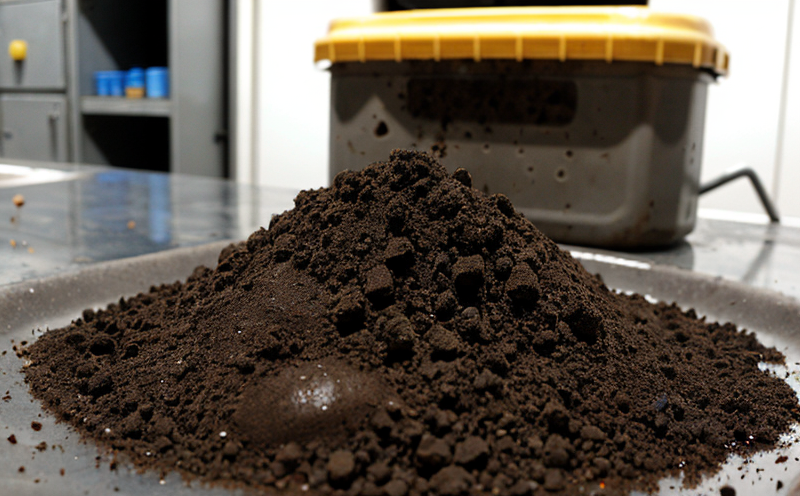Processed Food Residue Profiling
The demand for processed foods has surged globally, driven by convenience and dietary preferences. However, this growth also highlights the critical need to ensure that these products are safe from harmful residues and contaminants. Eurolab offers comprehensive residue and contaminant analysis services specifically tailored to processed food products. This service ensures that food manufacturers comply with stringent regulatory requirements while maintaining product quality.
Eurolab's processed food residue profiling involves a meticulous examination of various chemical compounds present in processed foods. Our team uses advanced analytical techniques such as High-Performance Liquid Chromatography (HPLC), Gas Chromatography-Mass Spectrometry (GC-MS), and Liquid Chromatography-Tandem Mass Spectrometry (LC-MS/MS) to identify and quantify residues that may be present in the food. These residues can include pesticides, herbicides, heavy metals, mycotoxins, veterinary drug residues, and other potential contaminants.
The process begins with thorough sample preparation, which involves homogenization of the processed food samples followed by extraction using appropriate solvents. The extracted compounds are then subjected to purification steps to remove matrix interferences before analysis. Our laboratory adheres strictly to international standards such as ISO 17025, ensuring that our results are accurate and reliable.
Once the samples are analyzed, Eurolab generates detailed reports that include raw data, identification of detected compounds, their concentrations, and compliance status with relevant regulatory limits. These reports provide valuable insights for quality managers, compliance officers, R&D engineers, and procurement teams to make informed decisions about product safety and improvement.
Our expertise in processed food residue profiling extends beyond just identifying residues; we also offer risk assessment services that help our clients understand the potential health impacts of these residues. This information is crucial for developing strategies to minimize risks associated with processed foods.
In summary, Eurolab's processed food residue profiling service ensures that processed foods meet strict safety standards and regulatory requirements. By leveraging our advanced analytical capabilities and commitment to quality, we help protect consumer health while supporting the integrity of the food industry.
Eurolab Advantages
At Eurolab, we pride ourselves on delivering exceptional service in processed food residue profiling. Our advantages are numerous and designed specifically to meet the needs of our clients:
- Expertise and Experience: Our team comprises highly skilled scientists with extensive experience in chemical testing and analysis.
- State-of-the-Art Facilities: We operate cutting-edge laboratories equipped with the latest instrumentation to ensure accurate and precise results.
- Compliance with International Standards: Eurolab complies with ISO 17025, ensuring that our testing methods are reliable and consistent.
- Fast Turnaround Times: We prioritize timely delivery of reports to help our clients make prompt decisions.
- Comprehensive Reporting: Our detailed reports provide a comprehensive overview of the analysis, including raw data and compliance assessments.
- Customized Solutions: We offer tailored services that meet the specific requirements of each client.
- Confidentiality and Security: Eurolab maintains strict protocols to ensure the confidentiality and security of all sensitive information.
- Compliance Support: Our team provides guidance on regulatory compliance, helping clients navigate complex legal frameworks effectively.
Why Choose This Test
Selecting the right testing service is crucial for maintaining product quality and ensuring consumer safety. Eurolab's processed food residue profiling offers several compelling reasons to choose us:
- Accurate and Reliable Results: Our advanced analytical techniques ensure precise identification and quantification of residues.
- Comprehensive Analysis: We analyze a wide range of potential contaminants, providing a thorough assessment of product safety.
- Regulatory Compliance: Eurolab's testing aligns with global standards, ensuring that your products meet all necessary regulatory requirements.
- Risk Assessment: Our risk assessment services provide valuable insights into the potential health impacts of detected residues.
- Confidence in Quality: With our comprehensive reporting and expert analysis, you can have confidence in the quality of your processed foods.
- Support for Innovation: Eurolab's expertise helps R&D engineers innovate while ensuring product safety.
- Cost-Effective Solutions: Our tailored services ensure that you receive only the testing necessary to meet your specific needs, optimizing costs without compromising quality.
- Global Reputation: Eurolab is trusted by leading companies across various sectors for its reliable and accurate testing services.
International Acceptance and Recognition
The processed food residue profiling service offered by Eurolab meets the highest international standards, ensuring that our clients' products are accepted worldwide. Our laboratory is accredited to ISO 17025, which guarantees the competence of our testing methods and results. This accreditation is recognized globally, making it easier for your company to export its processed foods to international markets.
Eurolab's adherence to international standards such as ISO, ASTM, EN, IEC, and others ensures that our clients' products comply with global regulatory requirements. Our expertise in residue analysis has been validated by numerous certifications from recognized bodies across the world. This recognition enhances the credibility of your processed food products in both domestic and export markets.
By choosing Eurolab for your processed food residue profiling, you can rest assured that your products meet the stringent quality and safety standards set by international regulatory authorities. Our commitment to excellence ensures that your products are not only safe but also competitive on a global scale.





